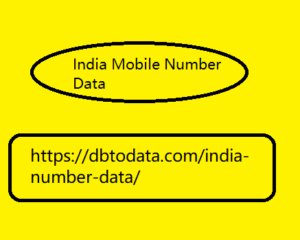Post by account_disabled on Mar 10, 2024 0:34:22 GMT -5
Behavioral economics is of fundamental importance when you want to lead your interlocutors to make a choice or an action by simplifying the information supply path and maximizing the effectiveness of communication. Often the messages used are wordless, they address human emotion and the mistakes that the conscious mind makes, they are pleasant and can make people do interesting, positive and beneficial things for themselves and others. Curious? The first and greatest interest of those involved in communication and marketing is to understand the psychological dynamics underlying consumer behavior. The awareness that rationality is not always the predominant element behind the choices and behaviors of human beings is now an established point. In fact, the opposite is true. Human behavior is subject to many errors, automatic and illusory perceptions, illogical dynamics and cognitive biases (see for example my article The 7 Lessons of Consumer Psychology and Neuromarketing ).
These "human factors", which show why we are very far from functioning like a India Mobile Number Data machine, are precisely the object of study of behavioral economics, a branch of economics that does not consider human thought to be infallible at all and which investigates how much and how these limits influence individual decisions and market outcomes. The key points of the article: Behavioral economics: what it is and why it is essential to know its principles. Study human behavior to develop effective marketing strategies. Limited rationality, lack of self-control, relativism and framing: these are the human aspects that behavioral economics studies and for which it offers important explanations. The elements of a correct marketing strategy that exploits the evidence of behavioral economics. Among the merits of behavioral economics there is undoubtedly that of offering depth and scientific relevance to phenomena that we all experience first-hand, more or less, thus allowing us to know in a serious and systematic way the functioning of our mind, and with it is that of our customers, real and potential.

It also allows us to understand what are the elements that make the individual more or less irrational and, consequently, what are the factors at play in making him more aware. From behavioral economics a new perspective in communication and marketing was naturally born, namely behavioral marketing . It essentially shows us how much the relationship between companies and customers has changed. In this article we will deal with: Classical and behavioral economics: econ and human compared Limited rationality Lack of self-control Relativism Framing Behavioral economics: how to best use it New call-to-action Classical and behavioral economics: econ and human compared Perhaps the best-known spokesperson for behavioral economics is Richard Thaler, an American economist, winner of the Nobel Prize for Behavioral Economics in 2017 and, above all, a man with many questions. One of the main ones went something like this: “Why do people often do very naive things when with very little effort and effort they could make more profits?”.
These "human factors", which show why we are very far from functioning like a India Mobile Number Data machine, are precisely the object of study of behavioral economics, a branch of economics that does not consider human thought to be infallible at all and which investigates how much and how these limits influence individual decisions and market outcomes. The key points of the article: Behavioral economics: what it is and why it is essential to know its principles. Study human behavior to develop effective marketing strategies. Limited rationality, lack of self-control, relativism and framing: these are the human aspects that behavioral economics studies and for which it offers important explanations. The elements of a correct marketing strategy that exploits the evidence of behavioral economics. Among the merits of behavioral economics there is undoubtedly that of offering depth and scientific relevance to phenomena that we all experience first-hand, more or less, thus allowing us to know in a serious and systematic way the functioning of our mind, and with it is that of our customers, real and potential.

It also allows us to understand what are the elements that make the individual more or less irrational and, consequently, what are the factors at play in making him more aware. From behavioral economics a new perspective in communication and marketing was naturally born, namely behavioral marketing . It essentially shows us how much the relationship between companies and customers has changed. In this article we will deal with: Classical and behavioral economics: econ and human compared Limited rationality Lack of self-control Relativism Framing Behavioral economics: how to best use it New call-to-action Classical and behavioral economics: econ and human compared Perhaps the best-known spokesperson for behavioral economics is Richard Thaler, an American economist, winner of the Nobel Prize for Behavioral Economics in 2017 and, above all, a man with many questions. One of the main ones went something like this: “Why do people often do very naive things when with very little effort and effort they could make more profits?”.






